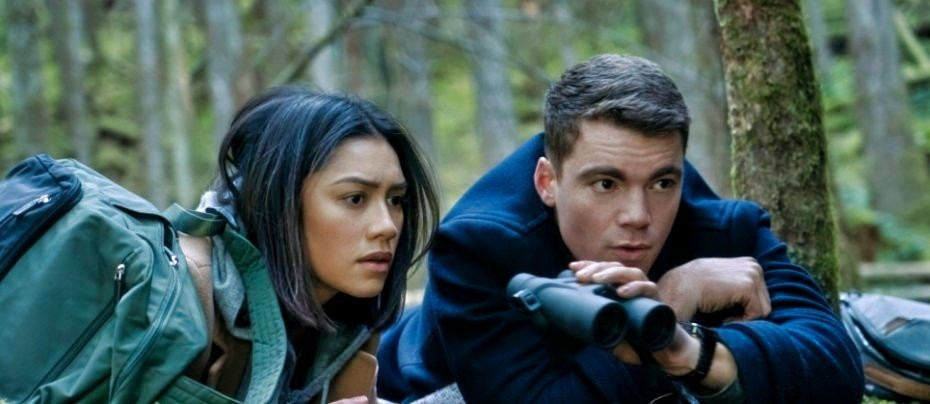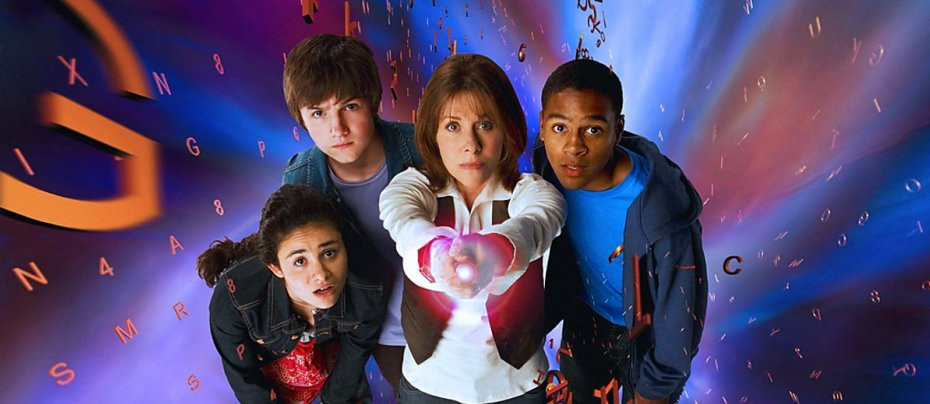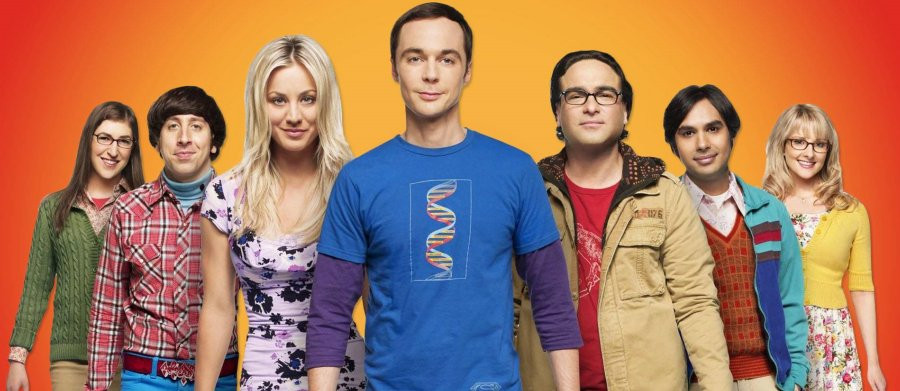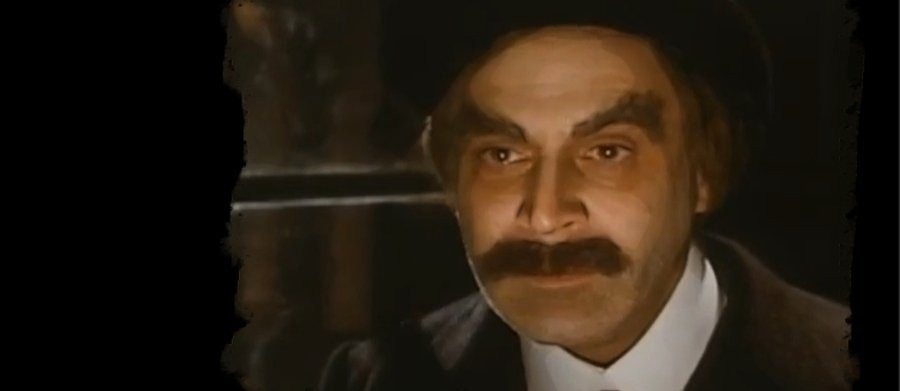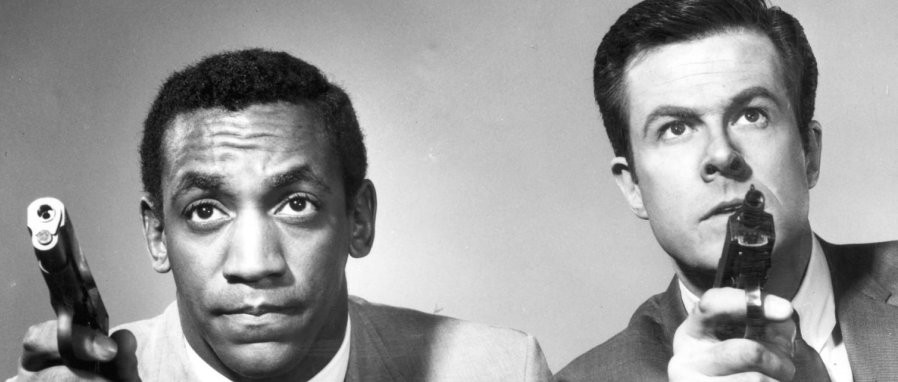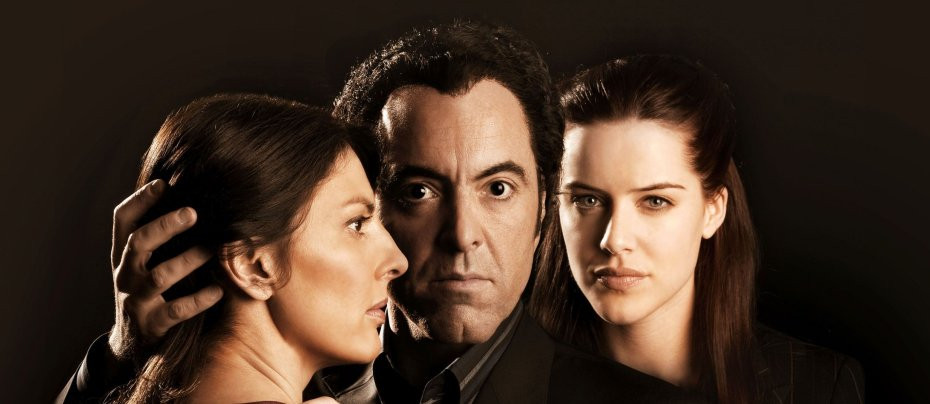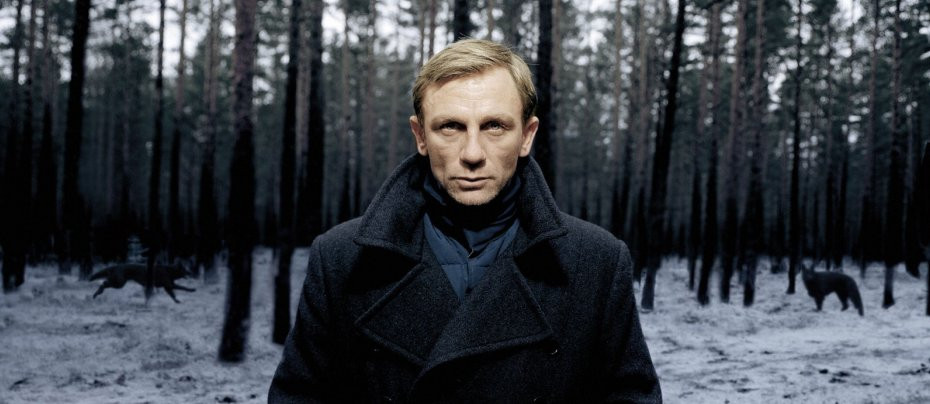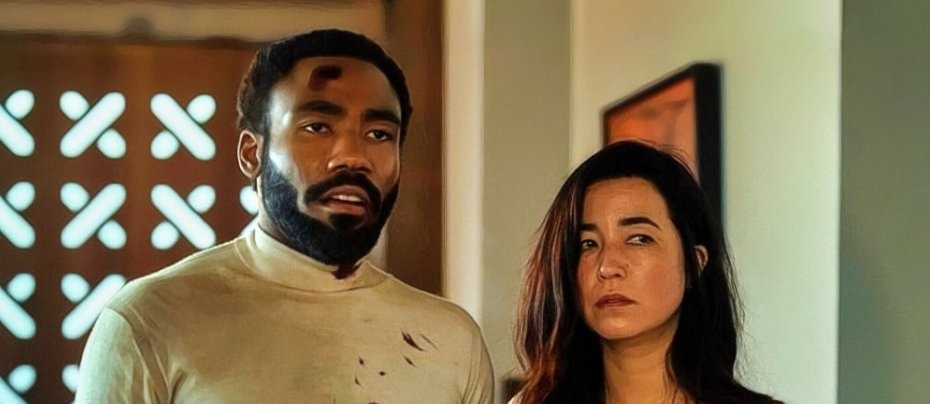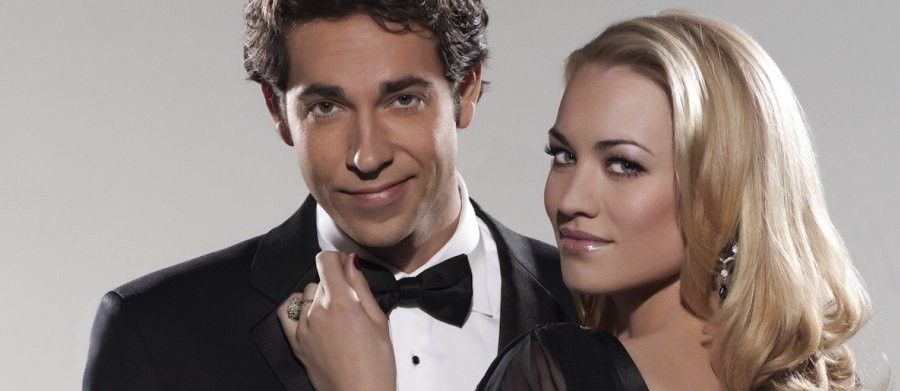
Chuck
2007 - United StatesAn idea whose time has come may break out in different places in different ways around the same moment. So, we have Newton and von Leibniz coming up with their own variations of calculus independently but simultaneously, and disputes over who really deserves the credit for harnessing electricity, the telephone, and practically every significant invention ever since. It may be what scientists call convergent evolution. It may be something in the air. Who knows?
Something similar happens with film and television projects. So you may go for years without a major feature about, say, Hercules or Robin Hood, only to have a couple arrive at once. It is the same principle as London buses.
It is not really a coincidence that two sets of producers came up with the same basic concept around 2007: a "slacker" working a dead end job in a retail chain store is suddenly gifted with extraordinary powers and responsibilities by someone he cannot trust.
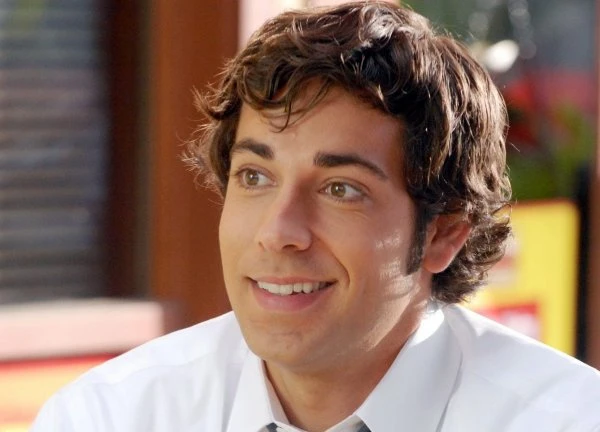
In Reaper, he is commissioned by the Devil to hunt lost souls, while in Chuck a CIA-NSA mega computer is downloaded into the brain of the eponymous hero.
As a major network show, Chuck got more money put into it, and this is reflected in an A-list genre friendly guest cast that includes Linda Hamilton from 'The Terminator,' Timothy Dalton from the Bond films, Scott Bakula from Quantum Leap, Tony Todd from 'Candyman,' Carrie-Anne Moss from 'The Matrix,' Gary Cole from almost everything, and, in an ironic bit of poaching, Ray Wise from 'Reaper.' Millicent Martin, Stan Lee, and Bo Derek have fun cameos.
In the title role, Zachary Levi - actually born Zachary Levi Pugh, but he obviously decided that was not a name for the posters when he decided on an acting career - exhibits great charm and skill in making a very demanding part look effortless. He is in fact called upon to play three separate roles: an underachieving computer geek, an underachieving geek pretending to be a superspy, and the genuine superspy into whom he develops over the course of the series. He succeeds in all three. Incidentally, in another bit of ironic poaching, Levi was married briefly to Missy Peregrym, who was the leading lady in 'Reaper.'

The only weakness in the characterisation is in the writing rather than the playing: Chuck matures but remains very needy, and his romance with his tough CIA "handler," Sarah (Yvonne Strahovski), is the least convincing aspect of the show, which, considering the show, is saying something. As with so many of the obligatory romances between the male and female leads on television, one never believes that these very different people would stay together in reality.
Happily, an antidote to Chuck's cloying love life is at hand, a shot of masculinity in the form of Adam Baldwin as his NSA minder, Major, later Colonel, John Casey, another in Baldwin's gallery of intelligent thugs. Channelling Clint Eastwood, complete with an eloquently contemptuous growl, he is at first impatient with the nerdish Chuck, but eventually becomes a loyal friend.
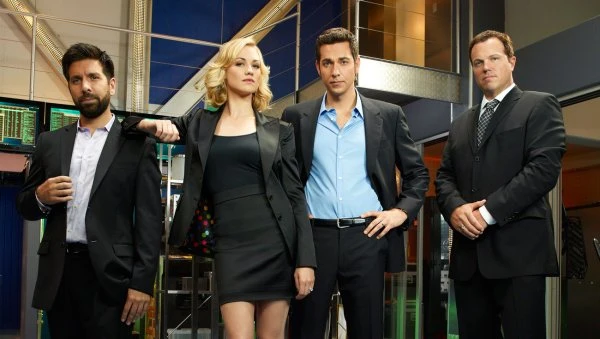
Casey, who has a picture of Ronald Reagan in his locker - and who may have taken his nom de guerre from Reagan's hawkish CIA Director, William Casey - is a rare sympathetic portrayal of an overt conservative on American television. Although most television writers are on the Left, or feel they have to pretend to be if they want Hollywood careers, money talks and other stuff walks: showbiz is a business and about half their target market is on the other side of the political fence - probably a lot more than half in the case of an action show like Chuck.
This probably explains why, despite debuting the year before Barack Obama was elected President of the United States and running through his first term, Chuck seems to have a very "neoconservative" view of the world: the CIA and NSA are presented as a more ruthless version of Interpol, violently but benevolently protecting the planet from illegal arms dealers and unspecified conspiracies. Needless to say, Islamic terrorists are never featured.
Indeed, the whole thing projects the rather innocent ethos and style of the great "spy caper" shows of the 1960s. There is a definite Man From U.N.C.L.E. aesthetic about it, especially in the bright, colourful set design and the extensive use of location.
This is reflected in the music, which often references Henry Mancini's legendary score for 'The Pink Panther.'
The music is also used very imaginatively to punch up the frequent film references in the script, which shows a witty sensitivity to "nerd culture." A particular highlight is when the Manager of the "Buy More," Big Mike (Mark Christopher Lawrence), channels Al Pacino when he reveals that he knows he was betrayed by his Assistant Manager, Morgan Grimes (Joshua Gomez). That Morgan cannot remember Indiana Jones is a significant plot point in a later episode.
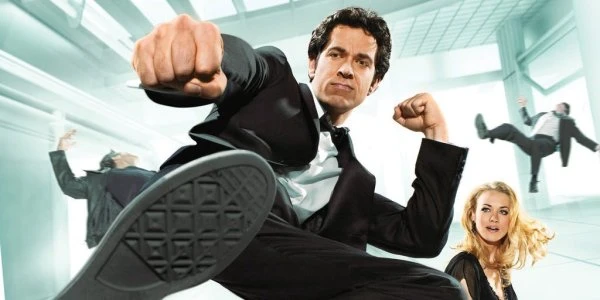
The basis of the whole concept, Chuck's double life as wage slave nerd and sophisticated superspy, began to fray a bit as the show went on. In order to "up the stakes," it was necessary to develop both his backstory and his abilities, so he was no longer just another underpaid geek. The emphasis was increasingly more on the spy caper side and less on the chain store side.
Indeed the whole "Buy More" plot became more and more redundant. There was no real effort to explain Chuck's frequent absences and so there was no discernible tension between his two lives. As Chuck himself matured, the other characters at the "Buy More," with the exception of Morgan Grimes, became more juvenile.
By the final season, the show was a straightforward spy caper with some "Buy More" scenes bolted on rather obviously as comedy relief of variable comedic value. As a spy caper, it was brisk and enjoyable, but rather out of its time and it had lost what made it different.
A few years on, it is still fun to watch. Indeed, it may seem less of an anachronism in retrospect than when it first came out, a 1960s spy caper that happened to be set in the age of the internet.
About the reviewer: John Winterson Richards
John Winterson Richards has a law degree from the University of Bristol, an MBA from the University of Wales Institute of Science and Technology (UWIST), almost 30 years' experience as a management consultant, and a fascination with organisational structures. An experienced freelance writer as well as a consultant, John has been commissioned and paid to write over 500 articles in print and online. He was a regular guest on the Mind Your Own Business podcasts and a major contributor to that website's blog.
John has also written The Xenophobe's Guide to the Welsh: A guide to understanding the Welsh that explores their nature and outlook with benevolence and humour, and How To Build Your Own Pyramid: A Practical Guide to Organisational Structures for Managers. Both are available from Amazon (see above).
Seen this show? How do you rate it?
Seen this show? How do you rate it?
Published on December 11th, 2019. Written by John Winterson Richards for Television Heaven.


